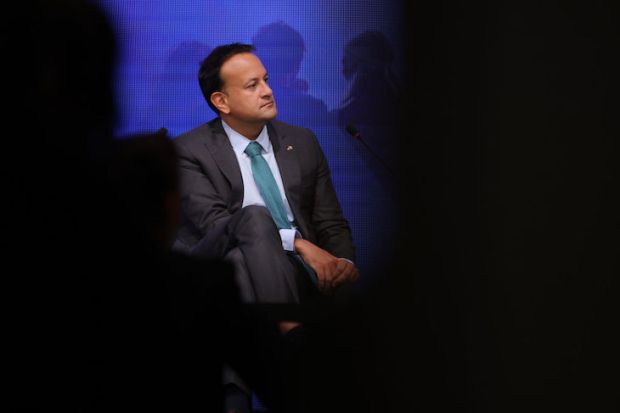Every Home Secretary is forced to confront the cold political realities of the office. What they set out to deliver – strengthening countermeasures in the aftermath of a terror attack, say, or taking steps to tackle a spike in violent crime – tends to be supported by swathes of the public at large.
But though they can enjoy that currency of quiet public support, Home Secretaries of both major parties must then do battle ‘inside the Beltway’ with a vociferous legal and human rights establishment – and other vested interests – which seek to dilute their policy responses to the challenge of the day. To use a term of art, it is often a ‘hostile environment’ for holders of that least understood great office of State.
As night follows day therefore, Priti Patel’s announcement of reforms to the asylum system was criticised yesterday by, among others, the UK spokesman for the UN High Commissioner for Refugees, the chief executive of the British Red Cross, and the barrister editor of the immigration law website Free Movement.
Considering all this, Patel’s latest reforms have actually landed better than might have been expected. Perhaps this is because of the pandemic, or because Labour – caught between its metropolitan constituency on the one side and its onetime Red Wall seats on the other – seems unsure how to respond. But it will still be political trench warfare all the way for the Home Secretary.
Since Brexit, immigration may have fallen down the rankings in terms of political saliency, but its importance can never be overstated, not least as a proxy for a bundle of equally potent issues: culture, national identity, tolerance of social change and more. As Patel deals with a difficult hand, then, it is worth remembering the real-world aims her measures have in mind: restoring fairness to the system, reducing the level of unpopular illegal immigration and stopping people dying in awful circumstances.
That, rather than the response of UN special rapporteurs, is the true test of success. After all, when 150 people land on British shores in one day – and 8,500 crossed the Channel last year in small boats – it’s no use pretending this isn’t a sophisticated criminal enterprise, one that depends not so much on need but as on whether a migrant can hand over £10,000 to people smugglers.
People make these dangerous crossings because, right now, how they get to Britain has zero impact on their asylum claim and their right to stay in the UK. Even though the vast majority – some 60 per cent – travel through safe countries like France, where they could end their journeys, they carry on going to the UK, very often across the Channel in inflatable dinghies. This is a legitimate point, however much activists try to howl it down. Why shouldn’t we try to distinguish between the genuine asylum seeker and someone trying to cheat their way into the country?
There is nothing wrong in principle with a two-tier system with relatively tougher conditions for asylum seekers who have entered illegally – no recourse to public funds, living in reception centres, no automatic right to stay even if their asylum claim is accepted – along with a new focus on directing genuine asylum seekers to the front door.
If Patel’s tough and tender measures work, far from being an encouragement to xenophobes, this proof of genuine control over our borders, would likely further soften the public’s attitudes to legal immigration. After all, polling data shows it is already softening as a result of Brexit, the end of free movement and the introduction of an Australian-style points-based immigration system.
But creating safe and legal routes is easier said than done. One can imagine a limited number of people being able to take advantage of, say, a new humanitarian visa in the way you might apply for a visitor visa or student visa from a British embassy or consulate.
Most refugees, however, tend to be fleeing societies broken by violence or poverty. Providing aid and security in the country itself or nearby is generally the most humane option, especially if a conflict is likely to be resolved swiftly. For more intractable conflicts there is the resettlement model of around 20,000 refugees from Syria since 2015. These are generally vulnerable people – women, children and adolescents at risk of violence or exploitation, for example – who are identified by the UN, then screened by the Home Office before being resettled in the UK. It is these people, not those relatively well-resourced enough to make the crossing with people smugglers, who deserve more help.
As the House of Commons Library notes, ‘the majority of Syrian refugees in the UK have been resettled directly from abroad: specifically, from the countries surrounding Syria to which they had been displaced by the conflict.’ People smugglers were excluded, and genuine asylum seekers were helped – and a very different demographic from the 87 per cent men, three quarters of whom were between the ages of 18 and 39, who arrived by boat across the Channel last year.
There is, alas, a catch to some of this, as explored in a Policy Exchange paper by John Finnis and Simon Murray published last weekend, which argues that a ‘radically expansive interpretation’ of human rights law has made it very hard to deport a determined illegal entrant. In their paper, Immigration, Strasbourg, and Judicial Overreach, Finnis and Murray are clear that decades of misinterpretations by judges of the European Convention on Human Rights have undermined democratic processes and in effect overturned the ability of European states to enforce immigration controls.
Two articles of the ECHR, as Finnis and Murray describe, have been particularly badly misinterpreted – and stretched far beyond what the original drafters intended. Article three, which rightly forbids torture and inhuman treatment, but has been used recently to prevent the deportation of someone because their life expectancy might be reduced without continued access to NHS treatment; and article eight, the right to private and family life, which allows people to potentially leverage the time they’ve spent in the UK, and the relationships they’ve formed while here, into a right not to be deported.
The latter in itself creates a big incentive to spin out the legal process through inappropriate use of the judicial review system. Asylum applications are now more likely to be granted on these human rights grounds than asylum itself.
In recent years the UK has been receiving around 30,000 to 35,000 asylum applications a year of which about a third are approved (rising to half on appeal), with failed asylum seekers forming a substantial part of the roughly 80,000 immigration offenders who are known to the authorities and sign in every month (who in turn are just a small proportion of the estimated one million illegal immigrants living in the UK).
The deep problem is this: most western countries have ’embedded rights’ that even non-citizens can access when they are in the country’s legal space. This produces a huge incentive for risk-takers from countries, usually young men, to try their luck at entering a rich country.
The options open to democratic governments to restrict the flow of asylum abusers are limited. One option is to remove people to another jurisdiction to process their claim, as in Australia, or at least to somewhere remote. This has been mooted by the Government but will be hard to implement.
The other option is to encourage voluntary deportation through making life as difficult as possible in the UK for failed asylum seekers and illegal immigrants in general. This was what the ‘hostile environment’ policy was meant to achieve but ended up netting too many innocent people in the Windrush scandal and has therefore added political risk to this strategy.
The final option is to remove the big legal obstacles to swift deportation. In the longer term, being outside the EU might make it somewhat easier to reassert democratic control here. But that will require going beyond Patel’s latest plans and examining how to respond to the massive expansion of human rights law since 1998 and in the decades before.
<//>
Got something to add? Join the discussion and comment below.
Get 10 issues for just $10
Subscribe to The Spectator Australia today for the next 10 magazine issues, plus full online access, for just $10.
Dean Godson is Director of Policy Exchange



















Comments
Don't miss out
Join the conversation with other Spectator Australia readers. Subscribe to leave a comment.
SUBSCRIBEAlready a subscriber? Log in